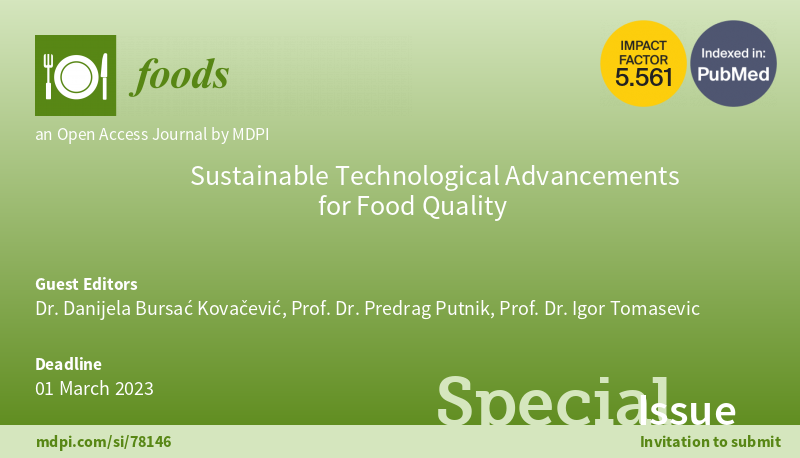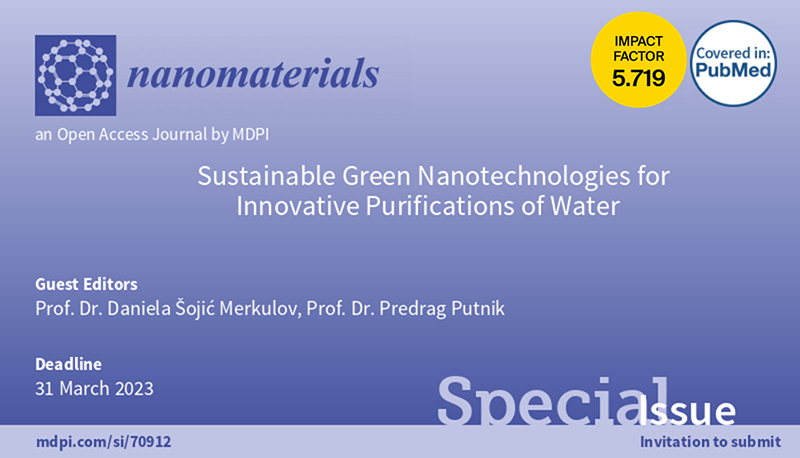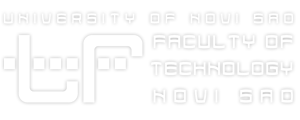CONFERENCE CHAIRMAN
Prof. Biljana Pajin, Dean, Faculty of Technology Novi Sad, University of Novi Sad, Serbia
ORGANIZATION COMMITTEE
from the Faculty of Technology Novi Sad, University Novi Sad, Serbia
- Prof. Zita Šereš
- Prof. Jaroslav Katona
- Prof. Nataša Đurišić Mladenović
- Prof. Lidija Petrović
- Prof. Jelena Pejin
- Prof. Dragan Govedarica
- Prof. Marija Milanović
- Prof. Senka Vidović
- Prof. Ljiljana Popović
- Prof. Jelena Pavličević
- Prof. Bojana Ikonić
- Ivana Nikolić, Assistant Professor
- Olga Govedarica, Assistant Professor
- Uroš Miljić, Assistant Professor
- Jadranka Fraj, Assistant Professor
- Branimir Pavlić, Assistant Professor
- Senka Popović, Assistant Professor
- Marija Jokanović, Assistant Professor
- Zorica Stojanović, Assistant Professor
- Milica Hadnađev Kostić, Assistant Professor
- Snežana Škaljac, Senior Research Associate
- Sanja Panić, Senior Research Associate
- Bojan Miljević, Senior Research Associate
- Jovana Petrović, Research Associate
- Mirjana Petronijević, Research Associate
- Vesna Vasić, Research Associate
- Ana Đurović, Research Associate
- Aleksandra Cvetanović Kljakić, Research Associate
- Nataša Nastić, Research Associate
- Ljiljana Spasojević, Research Assistant
- Jelena Tanasić, Research Assistant
- Andrea Nesterović, Research Assistant
- Milana Pribic, Teaching Assistant
- Julijana Blagojević, Teaching Assistant
- Jelena Škrbić, Research Trainee
- Sonja Stojanov, Research Trainee
SCIENTIFIC COMMITTEE
- Prof. Viktor Nedović, Faculty of Agriculture, University of Belgrade, Serbia
- Prof. Zorica Knežević-Jugović, Faculty of Technology and Metallurgy, University of Belgrade, Serbia
- Anamarija Mandic, Principal Research Fellow, Institute of Food Technology in Novi Sad, University of Novi Sad, Serbia
- Prof. Verica Dragovic-Uzelac, Faculty of Food Technology and Biotechnology, University of Zagreb, Croatia
- Prof. Dragana Šoronja Simović, Faculty of Technology Novi Sad, University of Novi Sad, Serbia
- Prof. Sandra Budžaki, Faculty of Food Technology, Josip Juraj Strossmayer University of Osijek, Croatia
- Prof. Sonja Smole Možina, Biotechnical Faculty, University of Ljubljana, Slovenia
- Prof. Drago Šubarić, Faculty of Food Technology, Josip Juraj Strossmayer University of Osijek, Croatia
- Prof. Zsuzsanna László, Faculty of Engineering, University of Szeged, Hungary
- Prof. Aleksandra Tepić Horecki, Faculty of Technology Novi Sad, University of Novi Sad, Serbia
- Vesna Đorđević, Principal Research Fellow, Institute of Hygiene and Meat Technology, Belgrade, Serbia
- Prof. Malgorzata Korzenowska, Department of Functional Food Products Development, Wrocław University of Environmental and Life Sciences, Poland
- Prof. Cecilia Hodúr, Faculty of Engineering, University of Szeged, Hungary
- Prof. Gordana Dimitrovska, Faculty of Biotechnical Sciences, University "St. Kliment Ohridski", Bitola, Macedonia
- Prof. Borislav Malinović, Faculty of Technology, University of Banja Luka, Bosnia and Herzegovina
- Prof. Zoran Zeković, Faculty of Technology Novi Sad, University of Novi Sad, Serbia
- Prof. Ljijana Đekić, Faculty of Pharmacy, University of Belgrade, Serbia
- Prof. Predrag Putnik, Department of Food Technology, University of the North, Croatia
- Prof. Rita Ambrus, Institute of Pharmaceutical Technology and Regulatory Affairs Faculty of Pharmacy, University of Szeged, Hungary
- Prof. Vlada Veljković, Corresponding Member of Serbian Academy of Sciences and Arts, Faculty of Technology in Leskovac, University of Niš, Serbia
- Perica Bošković, Assistant Professor, Faculty of Science, University of Split, Croatia
- Prof. Olivera Stamenković, Faculty of Technology in Leskovac, University of Niš, Serbia
- Prof. Gülsün Akdemir Evrendilek, Bolu Abant Izzet Baysa University, Bolu, Turkey
- Marinella Farré, Principal Research Fellow, Institute of Environmental Assessment and Water Research, CSIC, Barcelona, Spain
- Prof. João Crespo, NOVA School of Science and Technology, Universidade Nova de Lisboa, Portugal
- Prof. Zoran Petrović, Full member of Serbian Academy of Sciences and Arts, Kansas Polymer Research Center, Pittsburg State University, Pittsburg, USA
- Prof. Vladimir Srdić, Corresponding member of Serbian Academy of Sciences and Arts, Faculty of Technology Novi Sad, University of Novi Sad, Serbia
- Prof. Branka Pilić, Faculty of Technology Novi Sad, University of Novi Sad, Serbia
- Branko Matović, Principal Research Fellow, Vinča Institute of Nuclear Sciences, University of Belgrade, Serbia
- Prof. Ana Brás, Faculty of Engineering and Technology, Liverpool John Moores University, United Kingdom
- Lucretia Miu, Principal Research Fellow, National Research & Development Institute for Textile and Leather (INCDTP), Bucharest, Romania
- Polonca Ropret, Principal Research Fellow, Head of Research Institute at Institute for the Protection of Cultural Heritage of Slovenia, University of Ljubljana, Slovenia
- Prof. Alexander Knyazev, Chemical Faculty, Lobachevsky State University of Nizhni Novgorod, Russia
- Prof. Dmitry Grishin, Full member of Russian Academy of Sciences, Lobachevsky State University of Nizhni Novgorod, Russia
- Prof. Blaž Likozar, National Institute of Chemistry, Slovenia
 |
|
 |
|
All visitors and participants of 2nd International Conference on Advanced Production and Processing (ICAPP) receive 20% article processing charge discount, just make sure to mention ‘2nd International Conference on Advanced Production and Processing (ICAPP)’ and professors Bursać Kovačević, Putnik and Tomašević in your Cover Letters during submission.
Read more
FOODS — Indexing — Impact Factor: 5.561
Message from the Editors
|
|
All visitors and participants of 2nd International Conference on Advanced Production and Processing (ICAPP) receive 20% article processing charge discount, just make sure to mention ‘2nd International Conference on Advanced Production and Processing (ICAPP)’ and professors Putnik and Šojić Merkulov in your Cover Letters during submission.
Read more
Nanomaterials — Indexing — Impact Factor: 5.719
Message from the Editors
|
Participants are welcomed to submit:
- Abstracts,
- Posters,
- Full papers.
Abstract submission
Organizers of the conference welcome online abstract submissions written in English language that are closely related to the areas specified in Conference Topics/Sessions, until 15th June 2022.
All abstracts should represent original scientific work. Submitted abstracts will be carefully reviewed by members of the Scientific Committee and the announcement of abstract acceptance will be sent to authors via e-mail not later than 4 weeks after abstract submission.
For abstract submission please fill out the Abstract Template (download - docx) and send a filled form via e-mail to This email address is being protected from spambots. You need JavaScript enabled to view it.
Oral presentation instruction
If you are preparing oral presentation for ICAPP it should take no more than 10-12 minutes and should be followed by adequate Power Point presentation. 5 minutes will be left for discussion.
Poster Instructions
If you are preparing a poster presentation (on the basis of a sent abstract), you should follow the rules listed below:
- Poster size must be B1 (70cm x 100cm) portrait oriented,
- All text should not be smaller than 20pt,
- Text in plots and figures should also be at least 20pt,
- 1000 words is a good poster length,
- Poster should include the following sections: Introduction, Methods, Results and Discussions and Conclusion,
- Use section headings to orient the viewer.
Full paper submission
All correspondence, including submission of the manuscript, notification of the Editor’s decision and requests for revision, is conducted via e-mail This email address is being protected from spambots. You need JavaScript enabled to view it..
Submission of paper implies that:
- It is prepared according to these Instructions,
- It has not been published previously (except in the form of an abstract in the proceedings of a scientific meeting, or academic thesis),
- It is not under consideration for publication elsewhere, and
- It will not be published elsewhere in the same form, in English or in any other language, without the written consent of the publisher.
Preparation of manuscripts
Language: Manuscript should be written in English.
Typing: Manuscript must be written in Word with a font Times New Roman size 12 pt, with 1.5 line spacing and 2.5 cm margins, on A4 pages (max. 10 pages for scientific papers).
All pages of the manuscript should be numbered. Import tables and figures into the text. Abbreviations and symbols-notation should be explained at first appearing, or on a separate list at the end of manuscript.
General format
The manuscript should contain the following in this order: Title page, abstract and key words, introduction, experimental, results and discussion, conclusion, acknowledgement and references.
Title page
On the first page, there should be the title without symbols, formulas or abbreviations (capital bold letters). Title should be concise and explanatory of the content of the paper. Full name (name, initial and surname) of authors (without degrees, professional or official titles) should be given under the title, written in italics. Clearly indicate (with asterisk) who is responsible for correspondence at all stages of refereeing and publication. Ensure that e-mail address and the full postal address are provided. Affiliation of authors should be given after the author’s name. Indicate all affiliations with superscript number immediately after authors’ name and in front of appropriate address. If the paper was sent, as a whole or partially, at a scientific meeting, this should be stated in a footnote on the title page.
Abstract of the paper (100-250 words) should be given under the title and authors. Abstracts should contain the aim of investigated work, methods, results and conclusion.
Key words (Times New Roman 12, max. 5 key words) should be listed afterwards.
Introduction should state previous relevant work with appropriate references, the problem investigated and the aim of work.
Experimental
The materials and methods used should be stated clearly in sufficient detail to permit the work to be repeated by others. Only new techniques should be described in detail; known methods must have adequate references.
Results and Discussion
Results should be presented concisely, with tables or illustrations for clarity. The significance of the findings should be discussed without repetition of the material in the Introduction. Adequate number of illustrations, graphs and chemical formulae used should be kept to minimum.
Conclusion
This section should present the main conclusions of the study. Also, conclusions should indicate the significance of contribution and application possibilities of the obtained results.
Acknowledgements should be kept to minimum.
References cited should be indicated in the text using Arabic numerals in brackets ( ), in the order of appearing. All publications cited in the text should be presented in a list of references given on a separate page. Abbreviations of journal titles should be given according to the Chemical Abstracts Service (CASSI Search Tool; http://cassi.cas.org). The list of references should be presented according to ACS citation style and their appearance in the text. Give names of all authors (do not use „et.al.“), with their initials after respective surnames. Include article titles in journals. The abbreviated titles should be followed by the year (bold), volume (italic), number (in brackets if exists), and first and last page numbers.
The ICAPP best poster award will be awarded for each conference session.
The Best Poster Presentation Award - read more
The Best Student Oral Presentation Award - read more
- Registration fee: 72 € (60 €+VAT) - includes: Participation in all sessions; Conference materials; Coffee Breaks and Buffet; Certificate of Attendane; Guided tour of Novi Sad, Petrovaradin Fortress and Sremski Karlovci
- Gala dinner will be charged additionally in the amount of 30 € (25 € + VAT)
- Deadline for registration fee payment: Extended to 15th September 2022
All registered participants will receive an invoice from the agency Travel Design according to which they will pay the registration fee.
For any additional information about payment, please contact us on e-mail: This email address is being protected from spambots. You need JavaScript enabled to view it.
Entry to Republic of Serbia: For information regarding the entry to Serbia and whether a visa is needed as well as the requirements for obtaining a visa issued by the Republic of Serbia please click HERE.
If you need a visa to enter Serbia please click HERE to learn about procedure for obtaining visa.
Please do not pay registration fee without obtaining a visa to enter the country.
Time zone: The time zone is Central European Time (GMT+1).
Currency: The currency in Serbia is the Serbian dinar (RSD). 1 EUR = approx. 118 RSD
Country Code: In order to make an outgoing international call to Serbia, the country code is +381
About City of Novi Sad
Novi Sad is the main administrative, scientific, economic, cultural, political and touristic centre of the Autonomous Province of Vojvodina and the second largest city in the Republic of Serbia. It was founded in 1694 and with the edict which was proclaimed on 1st February 1748, Novi Sad became a "free royal city".
Today the City of Novi Sad has around 400,000 residents who live in the city area of 702.7 km2 located on banks of the river Danube in the southern part of the Pannonian Plain. Because of its position at one of the continent's true crossroads and its history as a multinational commercial and transit centre, the City of Novi Sad is endowed with historical and cultural sites that even much larger cities have difficulty matching. Novi Sad has the reputation of a multinational, multicultural and multi-confessional metropolis in which all differences are seen as advantages.
After winning the prestigious title of European Capital of Culture in 2022, the city of Novi Sad was declared the Youth Capital of Europe. Young people are the driving force of all events in the city and the energy of young people can be felt in the air.
The City of Novi Sad is also home town of EXIT Festival that has been among the top European and world music festivals for years. The Festival area is located on the world famous Petrovaradin Fortress, one of the largest, most complex and best preserved artillery bastions in this part of Europe, located on the right bank of the river Danube.
Tourist organization of the City of Novi Sad is a valuable source of information about the city of Novi Sad and its attractions. For further details, please visit http://novisad.travel/en/.
For further information about the Republic of Serbia we suggest visiting the website of National Tourism Organization
Or enjoying videos and material you can find at the following links:
https://www.youtube.com/watch?v=_TiHfYWhDmo
https://www.youtube.com/watch?v=TVxxL7S7Pzs
https://www.youtube.com/watch?v=qFJd9nxgXOI
https://www.youtube.com/watch?v=FQCJyvmM4xQ
Accommodation
- Hotel Centar 4* - https://hotel-centar.rs/, Address: Uspenska 1, Novi Sad, Phone number: +38121 477-6333
- Hotel Aleksandar 4* - https://hotel-aleksandar.rs/, Address: Bulevar Cara Lazara 79, Novi Sad, Phone number: +38121 480-4400
- Hotel Mediteraneo 3* - https://hotelmediteraneo.rs/, Address: Ilije Ognjanovića 10, Novi Sad, Phone number: +38121 427-135
- Hotel Vojvodina 3* - https://hotelvojvodina.rs/, Address: Trg Slobode 2, Novi Sad, Phone number: +38121 662-2122
- Hotel Putnik 3* - https://hotelputnik.rs//, Address: Ilije Ognjanovića 24, Novi Sad, Phone number: +38121 661-5555
Transportation
A carrier that can wait for you at the airport and take you to the Novi Sad:
This email address is being protected from spambots. You need JavaScript enabled to view it.
+38163526388
Web site: kiki021@rs
You can inquire/book and also, if you want, pay online.
For any information on railway departures between Belgrade and Novi Sad please search:
https://www.srbvoz.rs/en/ and https://novisad.travel/en/kako-doci-do-nas-2/
There is also a bus station in the city, which is the terminal for very frequent departures and arrivals in international and intercity traffic.
From the airport to the bus or train station in Belgrade, you can also use a taxi, and information is available at: https://www.tob.rs/en/info/useful-info/taxi
Taxi transportation from the location of the airport "Nikola Tesla" in Belgrade to destinations in the territory of the city of Belgrade is carried out at a fixed price depending on the destination zone. The confirmation of the fixed price of transportation must be collected at the taxi info desk, which is located next to the exit at the arrivals terminal. Taxi transportation from the location of the "Nikola Tesla" airport in Belgrade is carried out within 6 zones with fixed prices, namely:
- Zone 1 - Price (RSD): 1,400
- Zone 2 - Price (RSD): 1,800
- Zone 3 - Price (RSD): 2,200
- Zone 4 - Price (RSD): 3,000
- Zone 5 - Price (RSD): 4,500
- Zone 6 - Price (RSD): 6,000
Other taxi rides are performed by taxi meter.
More information about public transportation from the airport to Belgrade, you can find on:
https://www.beg.aero/eng/parking_access/transport/public_transportation and
https://www.beg.aero/eng/parking_access/parking_access/public_traffic_changes
All information about public transport in Novi Sad can be found on: https://novisad.travel/en/public-transport/






